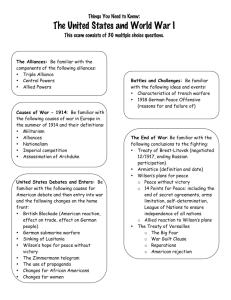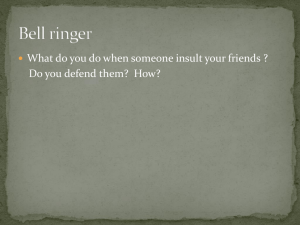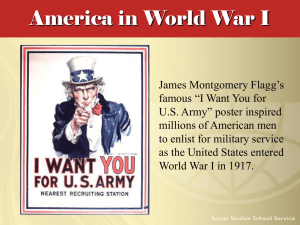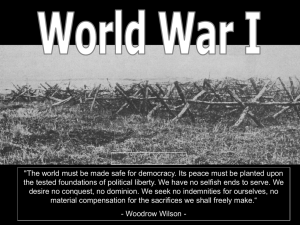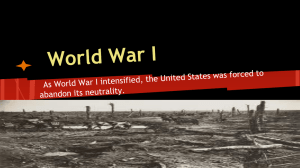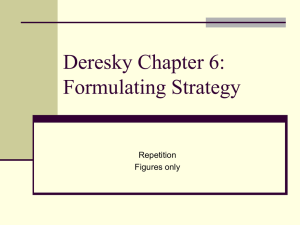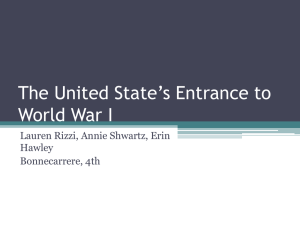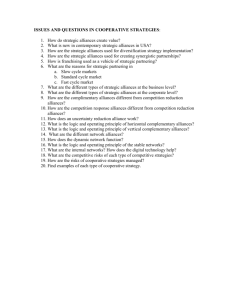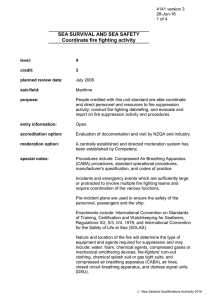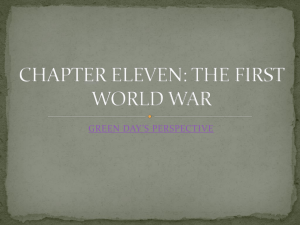APUSH Review, World War I
advertisement
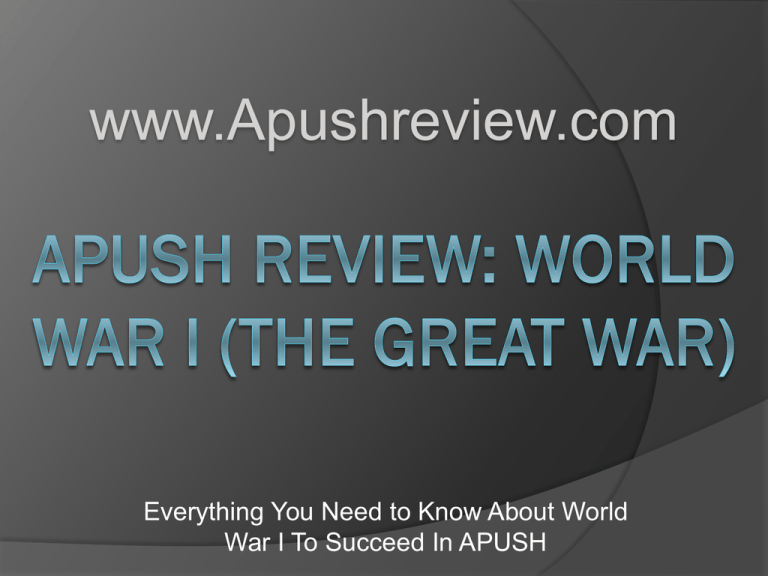
www.Apushreview.com Everything You Need to Know About World War I To Succeed In APUSH Causes Of The War Militarism Countries built up their military Alliances Secret alliances would drag countries into a conflict Imperialism Countries competed for overseas colonies Nationalism Desire to demonstrate the strength of each country Assassination of Franz Ferdinand Heir to the Austrian throne Assassination set off a chain of events which started the war The Two Sides Allied Powers: France Great Britain Russia Joined later US Italy Japan Central Powers: Germany Austria-Hungary Ottoman Empire US Neutrality And Challenges US sought to remain neutral Democratic slogan for Wilson for election of 1916, “He kept us out of war” Lusitania (May 7, 1915) Passenger ship sunk by Germany, killing nearly 1,200 individuals, including over 100 Americans Germany claimed the ship had munitions (later determined to be correct) Sussex Pledge: Germany damaged a French ship, the Sussex Germany promised not to sink merchant ships without providing a warning US Entrance Into The Great War Unrestricted Submarine Warfare: Biggest cause for US entrance into the war Germany would sink all ships, including American Zimmermann Telegram: (March, 1917) German proposal for an alliance with Mexico If Mexico attacked the US, Germany would help Mexico get land back in the SW US Wilson’s 14 Points Sought to make the world “safe for democracy” Wilson outlined 14 ideas for post World War I World No secret alliances, freedom of seas, etc. Establishment of a League of Nations Secret Alliances Domestic Issues During The War Creel Committee: Journalist George Creel helped promote the war effort “Four-Minute Men” gave speeches throughout the US Espionage Act of 1917: Sought to prevent interference with military operations (including the draft) Upheld by Schenk v. US in 1919 Sedition Act of 1918: Made it illegal to criticize the government Used to convict Eugene Debs Women, African Americans, And Labor Unions During The War Women: Women worked in factories and nurses Helped lead to the passage of the 19th Amendment African Americans: Fought in segregated units, mostly did manual labor W.E.B. Du Bois supported the war – hoped for improved rights for African-Americans Labor Unions: National War Labor Board: ○ Helped oversea disputes AFL – led by Samuel Gompers ○ Did not strike during war IWW – Industrial Workers of the World ○ Nick-named “I won’t work” Fighting In The Great War Trench Warfare: Most of the fighting occurred in man-made trenches Christmas Truce: December 1914, fighting stopped Chemical Warfare: Mustard Gas Armistice agreement on November 11, 1918 Treaty Of Versailles Article 231 punished Germany for starting the war “War-guilt” clause League of Nations: Article X – called for members to give assistance to others if needed ○ Congress detested this stipulation Effects Of The War US reverts to isolation: Harding (1920) campaigned on a “Return to normalcy” “Red Summer” Race riots in Northern cities – “Great Migration” Fear of Communism: 1st Red Scare Increase in nativism Thanks for watching! Subscribe to my channel Help spread the word Questions? Comments? Ideas for videos? Leave in comments Let’s stop the fighting and subscribe!
